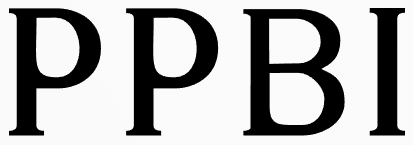How to Avoid the Mistake of Hiring the Wrong Painter
Hiring the wrong Brisbane painters can turn a straightforward project into a costly, stressful experience. A bad painter may leave you with poor workmanship, unexpected expenses, and a job that falls far short of your expectations. To prevent this, it’s crucial to know the signs of a subpar painter and take steps to avoid giving them the job. Here’s a guide on how to recognise red flags and choose a skilled, reliable painter who will deliver the quality you expect.
1. Look Beyond the Cheapest Quote
It’s tempting to go with the lowest quote, but a cheap price tag can be a sign of a bad painter. Painters who offer very low rates may cut corners, use inferior materials, or rush the job. While everyone has a budget, hiring the cheapest option often leads to more expenses in the long run, as you may need to redo the job or pay for repairs.
Instead, gather several quotes and assess them carefully. A good painter provides an itemised quote with clear details about labour, materials, and other costs. Look for someone who charges a fair price for high-quality work rather than focusing solely on cost.
2. Check for Proper Licensing and Insurance
Painters without proper licensing and insurance may be less committed to professional standards, putting you at risk. Hiring an unlicensed or uninsured painter can expose you to liability if something goes wrong, such as damage to your property or an injury on the job. Additionally, unlicensed painters are often less experienced or trained, increasing the risk of poor workmanship.
Always ask for proof of licensing and insurance. A reputable painter will have no issue providing these documents. Avoid hiring anyone who hesitates or cannot produce them, as this is often a red flag.
3. Beware of Lack of Experience and Poor Reviews
Experience matters when it comes to painting, as it ensures a painter knows how to handle different surfaces, paint types, and techniques. A lack of experience can lead to issues like uneven coverage, drips, and a finish that doesn’t last. Avoid hiring a painter who cannot provide a portfolio or show evidence of past work. Additionally, always check online reviews. Reviews reveal how previous clients felt about the painter’s quality, professionalism, and reliability. Multiple complaints about poor communication, missed deadlines, or shoddy work should serve as a warning.
4. Pay Attention to Communication Skills
Effective communication is key to a successful painting project. A good painter will be responsive, answer your questions clearly, and provide detailed explanations of their process and materials. A bad painter, on the other hand, may avoid direct answers, be difficult to reach, or fail to explain their methods. Poor communication can lead to misunderstandings about timelines, costs, or the final result, often causing frustration and disappointment.
Trust your instincts during the initial discussions. If a painter seems disorganised or unresponsive, it’s a sign that they may not handle the project smoothly.
5. Evaluate Their Professionalism
Professionalism goes beyond skills—it’s about showing respect for you, your time, and your property. A bad painter may arrive late, leave a mess, or treat the job carelessly. Unprofessional behaviour often results in rushed or sloppy work, which will cost you more time and money to fix.
Look for a painter who values punctuality, tidiness, and courtesy. A professional painter will also provide a contract outlining the scope of work, timeline, and payment terms. Avoid any painter who wants to start without a clear agreement in place.
6. Get Everything in Writing
One of the biggest mistakes people make when hiring a painter is failing to secure a written contract. Verbal agreements leave room for misunderstandings and make it difficult to hold the painter accountable if something goes wrong. A written contract protects both you and the painter by clearly outlining expectations, costs, and project timelines.
Conclusion
Giving the job to the wrong painter can lead to unnecessary stress, expense, and disappointment. By knowing what to look for—and what to avoid—you can ensure you’re hiring a painter who is skilled, professional, and trustworthy. Take the time to review quotes, check references, verify insurance, and trust your instincts. With a little extra diligence, you’ll avoid the pitfalls of a bad painter and secure the high-quality finish your project deserves.

